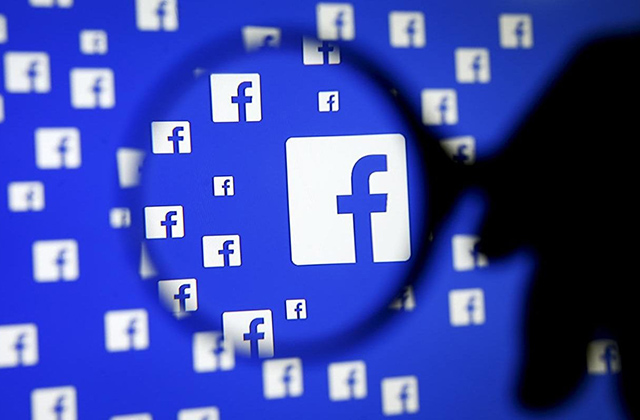Facebook and parliamentary elections: waiting for war of fake profiles

Social networks have become an inseparable part of our daily life. It’s another issue whether it’s good or bad, however, the fact is that many people spend more time on social networks (Facebook, twitter, odnoklassniki, etc.), than in real life.
Number of people using the social networks is growing day by day, and naturally, this platform couldn’t be but used for advertising purposes as well. In particular, Facebook has long ago been considered one of the biggest platforms (in 2015 company’s income comprised USD 17 billion). This social network is used for advertisement not only by business companies, but also political powers. Armenia’s political figures and powers also use Facebook and its advertising properties. And prior to parliamentary elections scheduled on April 2, their presence has notably been activated.
How do Armenian political powers make use of Facebook properties?
According to Artak Harutyunyan, Director of Smartology Digital Marketing Academy, currently the so-called investigative stage of “gaining weight” is in process. Political powers firstly, on the one hand, activate their Facebook pages, number of followers, pass new breathe, on the other hand, touch moods of the society and their competitors.
One of the latest examples is the Facebook page of former PM Hovik Abrahamyan. His page existed long ago, however, since 30 May 2015 it hasn’t been updated.
After a 7-month break the first post was condolatory on occasion of Armen Yeritsyan’s death. Currently former PM’s page is rather active, and the number of page likes reaches 10 thousand. Facebook page of former Defence Minister Seyran Ohanyan has activated as well. Number of followers exceeds 16 thousand. It’s worth stating that it isn’t necessary that the page follower may be supporter of the person or his/her power.
By the way, contextual logic of Ohanyan’s page has changed as well. Formerly one may come across materials, which are hardly imagined on the Minister’s page (e.g. 30 August 2015 Seyran Ohanyan shared an article published by New Style, where stylist Armine Martirosyan advises what to wear on September 1).
It was so strange that many thought Seyran Ohanyan has no connection to that page. However, obviously, it’s his page. By the way, to avoid misunderstanding, there is a possibility of verification. It’s a round blue sign, which means Facebook confirmed, that the page officially belongs to that person. For instance “Civil contract” leader Nikol Pashinyan, as well as his partner Edmon Marukyan from “Yelq” have a verified page as well.
RPA artillery Armen Ashotyan has a personal account (profile) with 5000 friends and about 68 thousand followers. Thus, Armen Ashotyan has had a rather serious Facebook audience long ago.
Artak Harutyunyan states, that creation of fake profiles comprises a part of “weight gaining” process. Political powers or figures form an army of fakes, which, if necessary will support and swear anyone, influence on the development of social opinion. Recently users receive many friend requests, for instance from John Smith, who may change his name to Poghos Poghosyan two months later and start working for someone. Ahead of elections fake profiles will be more and more active. Thus, get ready for the war between fake profiles.
Besides gaining weight the political powers also do investigation in virtual space. According to Artak Harutyunyan, in the period of recent 2-3 weeks lots of polls have been sent to Social Bakers platform for using its tools. Social Bakers has serious tools meant for monitoring the internet and social networks, which allow to strictly have imagination on interested audience. He said, in all likelihood, those interested are the political powers, as there is no noticeable boom in business, i.e. people attempt to make impression on their virtual electorate.
Who works for political powers and how?
It’s one thing posting something on Facebook, and providing views for it—another. To show the post or publication to many people it can be advertised on Facebook. Price for it will depend on the audience, ad duration and etc.
Both the page may be advertised to increase the number of followers, and separate publications—to provide most views.
Tigran Urikhanyan, head of “Alliance” party, NA MP, is one of the most active and persistent users of Facebook ad. The latter not only publishes his speeches and Q&A in the NA, but also actively advertises them. Urikhanyan’s ad is frequently met on Facebook newsfeed. Throughout recent months ANC faction head Levon Zurabyan has been active on Facebook as well.
However, Artak Harutyunyan reminded that the one of the first political figure to use Facebook ad for election purposes was Vardan Sedrakyan, ”specialist in epic”. Armenian National Congress (ANC) has launched an active campaign on Facebook recently.
Facebook ad, however, has nuances—one may spend USD 100 and have no result, and it’s possible to have a touchable result by USD 10. Here targeting of the audience is very important. One may decide people of which age and gender the ad may be shown, in which territory and with which interests.
Judging from recent publications Armenian political powers started to attach attention to targeting, e.g. Seyran Ohanyan’s congratulatory statement on Army Day was advertised for people aged 18-64. The page promoter particularly stated that the ad was shown to those interested in business (this is the result of my personal account).
To effectively organize Facebook progress one may have some knowledge from the field or apply to professional SMM—social media marketing. Artak Harutynyan, relying on his personal observations, considers that political powers mainly independently do progress. He considers even if they apply to professionals, they’ll be team members, as there are issues of trust and information flow.
What role does Facebook play?
There are opinions that Facebook varies greatly from the reality, i.e. powers with active and big audience, in fact, may receive few votes. However, from the perspective of impacting on social opinion, Facebook’s role is difficult to overestimate.
For instance, recently serious analysis was issued on the influence of Facebook campaign based on U.S. presidential election results. It was proven in the material that Trump succeeded to win due to correctly targeted policy on Facebook. Of course, the reality is different in Armenia, however, Facebook audience is rather big: number of users visited Facebook at least once a month reaches 1 million, and according to different assessments, every second person using the internet is a Facebook user.
Harutyunyan states, that during the campaign Facebook is already a serious contestant to TVs and online media outlets. One of the reasons is that the audience is more or less familiarized with direction and preference of media outlets and already treats them with certain predisposition and reservations. And uncertainty on Facebook, accordingly, manipulation possibilities are bigger.
Artak Harutyunyan also stated that the role of Odnoklassniki social network shouldn’t be underestimated either. Visits to that website from Armenia reach 900 thousand and is more popular especially among the population in the regions.
Thus, political ad—obvious and hidden, will soon stuff our newsfeed of all social networks.
By Babken Tunyan

























